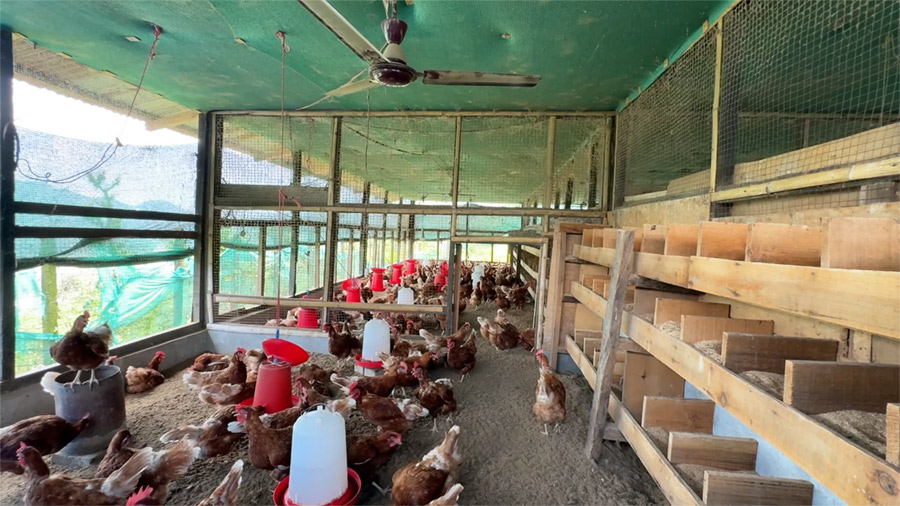
The World Health Organisation received case of a human infected with avian influenza also known as bird flu from West Bengal in India. According to sources, four states in India have already reported cases among poultry. With the risk hovering in the neighbouring states, the Bhutan Food and Drug Authority and the National Centre for Animal Health are on high alert.

The child in West Bengal who caught the virus was admitted to a local hospital with severe respiratory issues.
According to the WHO, animal flu viruses can also infect humans.
Following the news, the National Centre for Animal Health under the livestock department is watching the pattern of the disease emerging in the region and globally.
“As the incidences of the cases in wildlife, wild birds, as well as domestic birds in Europe and the Americas, started happening, we have been watching it closely and as it gradually came to South East Asia, we have sent out a lot to our field offices to specially reinforce the message on strengthening the biosecurity as well as good farm management practices in their respective jurisdictions,” said Dr Sangay Rinchen, National Centre for Animal Health’s Programme Director.
He added that all meat products entering the country are being regulated.
Likewise, the food and drug authority said that they ensuring everything that is imported and exported meets general public consumption quality. The authority also carries out import risk assessments.
Authorities also activate border vigilance teams when outbreaks are reported in neighbouring towns.
“We collaborate with the Department of Livestock. Then we create awareness to the farmers. We tell them that if there is unusual mortality and morbidity in farms, they report either to Bhutan Food and Drug Authority officials or the Department of Livestock extension officials,” said Dr Sherub Phuntsho, Deputy Chief Regulatory and Quarantine Officer of Bhutan Food and Drug Authority.
Meanwhile, the National Centre for Animal Health is advising poultry farmers to enhance farm biosecurity.
The centre says using protective clothing and disinfectant while entering and exiting the farm are some good farm practices.
“Since the current spread of disease is happening through wild birds I think it is important that there is protection that can ensure that wild birds and domestic birds do not come into contact and we should always restrict the illegal or unauthorised entry of other people as well as vehicles into your farm,” added Dr Sangay Rinchen.
Some poultry farmers in the bordering areas said they are following farm hygiene practices as advised.
“It is good so far, no diseases have been reported. We maintain hygiene on the farm by dipping our feet and washing our hands before entering the farm. We also put on a dress and facemask before entering the farm,” said Khel Kumari Raika, a poultry farm worker in Chhukha.
“We are changing the sawdust once every three months. We also take the chicken waste from time to time and feed vitamins to chickens. Besides the two staff and the owner who comes to check sometimes, others are not allowed to enter from the gate,” said Chamith Lepcha, another poultry farm owner in Chhukha.
The last outbreak of bird flu in the country was reported in Samtse last year.
Devika Pradhan and Kinley Dem
Edited by Phub Gyem








